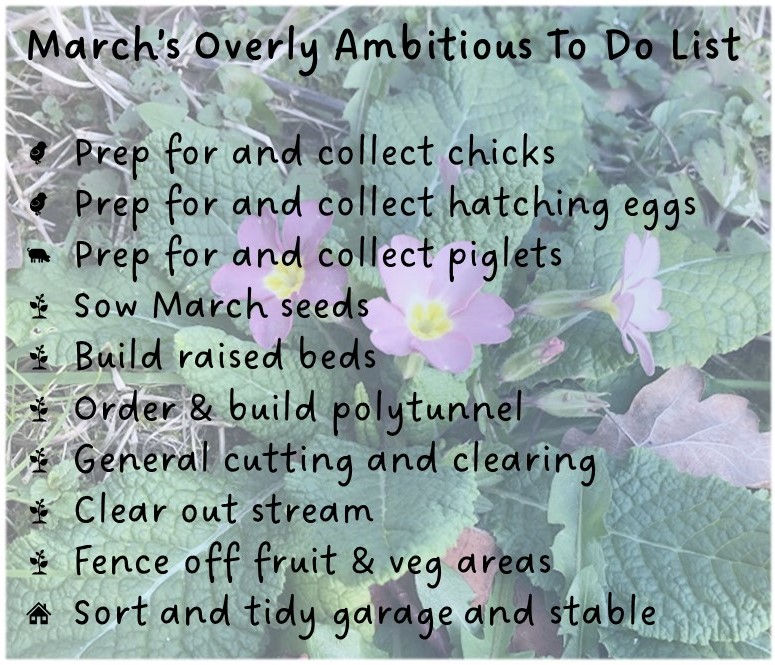Alpaca! Lambs! Geese! Kunekune! Guinea Fowl! Turkeys! Ducks! Goats! Quail! Pigs! Repeat.
- MrsEOP
- Nov 16, 2022
- 4 min read
Updated: Jan 21, 2023
That pretty much summarises my animal thought process for the last 18 months.
Its a bit like a roulette wheel, give it a spin and whatever it lands on: yeah, that's the thing for me! Until the wheel is spun again. And so it goes on.

Using my own Alpaca fibre to make felted artworks and yarn for hand knitted goods? Amazing! They're friendly, hardy, clean (they all poo in the same pile), soft-footed, relatively disease-free, inexpensive to keep, they hum when they're happy (oh my wow!) and, of course, they're adorable to look at. They are, however, classed as exotic pets very expensive to buy, and you can't eat them (well, they are both edible and delicious, but I doubt it would be financially viable in the UK).
Alpaca were the first animals we got really excited about, and we told anyone who would listen what we were going to fill our field with. This has resulted in me being inundated with some fabulous alpaca and llama-related gifts.

Goats are fabulous fun, help keep hedgerows in check, can be milked and are frankly delicious in a curry....but have a knack of escaping rivalled only by Houdini (and a toddler at bedtime); probably not ideal when bordering an A road.

The word I've heard used most in association with sheep is "stupid", along with a litany of complaints about lameness and illness, and the Sheep Manual I bought shows most of these in glorious technicolour. I must say that's still not enough to put me off, even when coupled with the prospect of through-the-night feedings of cade lambs.
Though I will add the caveat that I'm writing this from the comfort of my sofa, not having had to get up in the night to feed anything, and the memories of multiple night feeds with the kids has been kindly softened by my brain into tranquil moments of love and precious cuddles in the night.

We've debated pigs on an off for a while, and thinking we should probably avoid anything too big and daunting, settled on Kunekune. These adorable "fat and round" pigs were raised by the Maori in New Zealand, and were brought over to the UK in the mid-90's. They're apparently very friendly are good grazers and don't tend to "root" as much as other breeds. We thought that could work really well for us, as they could be rotated around the land, helping keep down the brambles and nettles, and turning the soil for later plantings. They are very efficient feed-converters, but take a while to get to weight. Once they're there though, they make apparently excellent sausages. But after so many months, would we be able to part with them? Also, as they're often sold as pets, they are usually more expensive than meat weaners which would impact on cost/kg. But then, are we doing this for the money, and do we really need a higher yield? Perhaps not if we're not planning on selling much meat.
It was (rather embarrassingly, for someone who grew up in a - admittedly mainly diary and crop - farming village) only once I'd been on a pig keeping course that I realised the size difference between fully grown (300-400kg) and meat weight (70-90kg) pigs. And, as with fattening lambs, not having livestock year-round was an appealing thought. Not only from a having to do things in the cold and dark and wet point of view, but also because we might at some point like to have a holiday! In a few months, two or three weaners would hopefully be able to help root out some of the brambles and nettles, and turn over some ground for later planting.
We've kept chickens for about 10 years now, so branching out into other poultry seems a natural progression, not too far out of our comfort zone, but perhaps Guinea Fowl may be a little noisy for our neighbours. We had the most delicious organic goose last year thanks to Riverford; imagine if we could rear our own for next Christmas! And with the 2022 Avian Flu crisis currently in the headlines in the run of to Christmas, of particular concern for people wanting fresh free-range birds, perhaps a few turkeys for friends and family.
An expansion of our chicken flock, for both eggs and meat, seems both easy and sensible. With the current shortage of eggs in supermarkets, and the cost of a free range chicken at about £25 from the local farm shop, we'd be unlikely to lose money on this investment. We'd need to plan carefully to allow them lots of space whilst ensuring we could maintain bio-security measures - I don't think we can assume that bird flu is going to go away anytime soon. Similarly we've probably got space for a few more quail; hatching eggs and an incubator may have been promised to the kids...and maybe some bantams for them as well, to make up for the fact that we'd be eating some of the chickens...




Comments